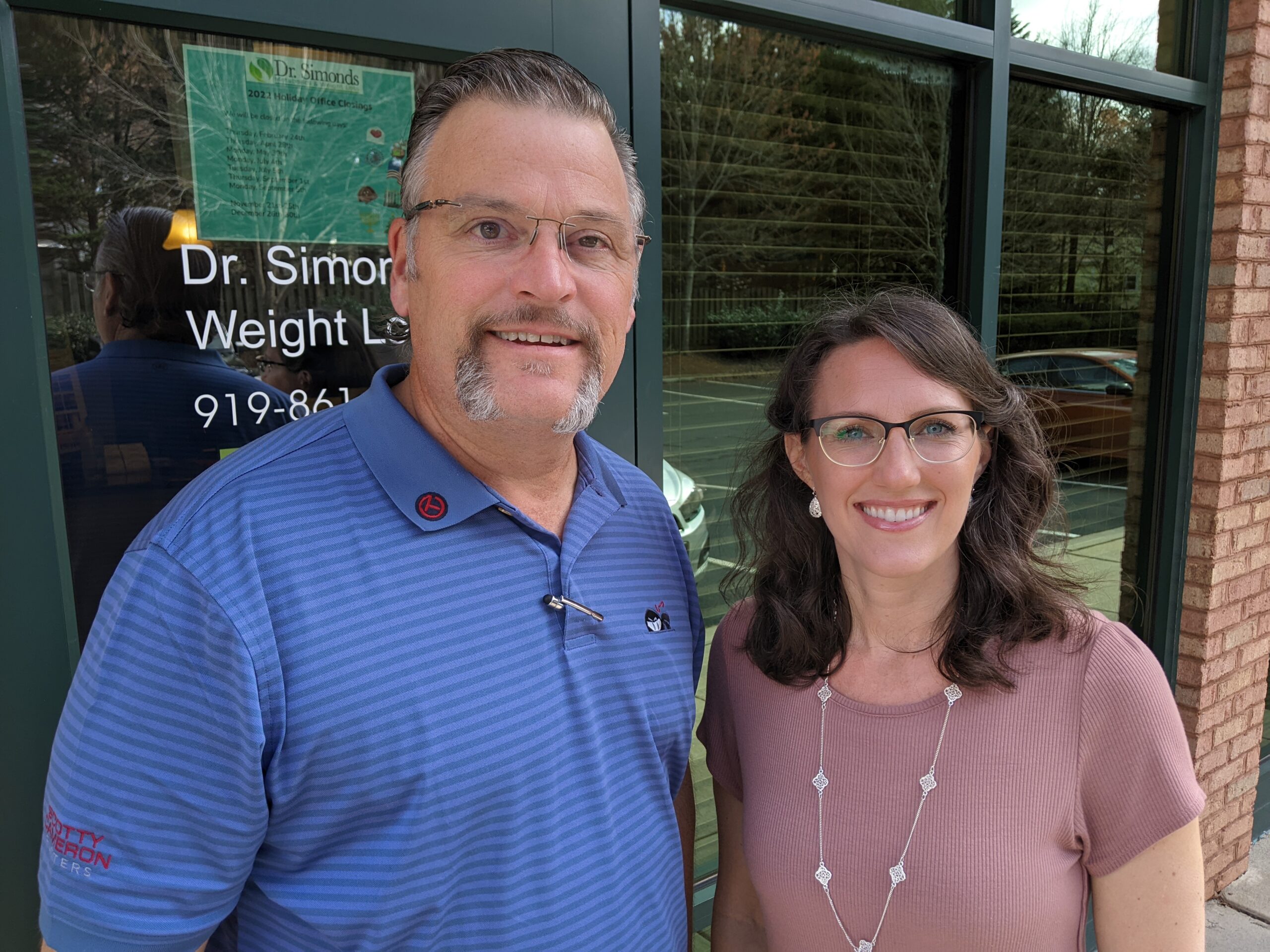
Dr. Simonds and Michelle Kennedy, NP-C answered your weight loss questions and gave away a $25.00 JCPenney Gift Card to one lucky viewer.
Q: What do you think of the carnivore diet? How does it compare to keto and does it have any additional benefits?
A: The carnivore diet is a newer trend, but it’s similar to keto and has been around for a very long time. Your ancestors have been eating animals for the entirety of human evolution. The carnivore diet is where only meat, fish, eggs, and some animal products are consumed. Basically, it’s eating only animals and animal products. Vegetables are generally excluded entirely.
The carnivore diet is great and the patients that do eat this type of diet have good health parameters. If you consume a carnivore diet, then you are also eating keto. However, there is a way to eat keto without being on a carnivore diet. There are plenty of additional benefits to the carnivore diet including the healing of gut and digestive issues.
Q: How soon after having a baby would I be able to start the body contouring and skin tightening services?
A: Our body contouring center is located right next door to our Durham office. While you can begin our non-surgical body contouring immediately, we suggest you wait until you are losing weight or have lost some weight already for the best results. Once you’ve delivered your baby, are back on a diet and weight loss plan, and losing weight, we’d love to discuss our body-contouring services with you. Our nurse specialist, Anna offers a free consultation and will be happy to discuss some options with you.
Q: Is it a good idea to eat fruits for snacking? It’s the sugar that I question even though it’s natural.
A: You’re right on the money and that’s absolutely right! It’s not that fruit is bad, but it does have a lot of natural sugar and most fruits today are genetically modified to contain lower fiber and lower nutrients. They are also modified to have higher sugar to make them tastier, which will definitely raise blood sugar in many individuals. There are also many metabolic consequences of consuming fructose due to the extra work on the liver. If you do decide to consume fruit, we suggest only eating whole fruits and to avoid fruit juices. Consuming fruit along with protein such as nuts, cheese or even a chicken salad will help how the fruit is metabolized in the body. Berries, green apples, and those fruits with a more sour flavor are great options!
Q: Is it true that weight issues tend to be genetic and can make it harder for some to lose weight than others?
A: Yes! Genetics will play a huge role in our abilities to lose weight, gain weight and cause difficulties in weight loss and keeping it off. Many individuals in a family will struggle with weight issues. It’s similar to when cancer, diabetes, or blood pressure issues play a role in genetics. Weight is no different. Obesity is a chronic medical condition that has both genetic and environmental influences. Think of your genes as having an on and off switch. The foods and drinks we consume and factors in the environment can actually change your genetic code. It can turn on the genes that promote obesity.
Q: How often do you suggest the Lipotropic Injections?
A: B Vitamins are water-soluble and are generally used up by the body in about 7-10 days. Many of our patients receive regular injections weekly, but there’s really no wrong way. It really depends on how often you feel you need them. So as frequently as once a week, or you can even extend them to every other week or even monthly.
Q: How do you regulate your blood sugar while exercising?
A: The best way is to perform a low to moderate-intensity type of exercise and keep your heart rate around 125 such as walking. Performing these types of exercises will ensure that you are burning fat. High-intensity workouts, where your heart rate is hovering around 170 beats per minute will have you burning more sugar instead. We suggest lower intensity workouts to keep you in a fat-burning zone.
A: Why is it more difficult to lose weight as you get older?
Q: There are many reasons, but the main ones include the loss of lean body mass and the hormonal changes that happen as we get older. This is why we suggest eating more protein to help. We discussed this more in-depth during a recent show.
Q: Do probiotics and gut health help with weight loss? Do you recommend them in your office?
A: There is a product that we carry at the office, Metagenics that went through trials that do show some weight loss benefits. Just be careful with the brand of supplements that you choose since this is a very unregulated industry. This is why we recommend Metagenics, which are thoroughly tested and researched. Contact our office if you have any question about Metagenics.
Q: Have you seen the show, Fat: A documentary? Do you recommend patients watch it?
A: We haven’t actually seen it yet, but hopefully it is debunking the fat is bad myths. Naturally occurring fat is not a bad thing.
Q: Why are the last 5 to 10 pounds so hard to lose?
A: The main reason is called, metabolic adaptation. Metabolic adaptation is one of your body’s survival mechanisms that occurs when you’re losing a significant amount of weight. It’s our biological drive to regain weight once we’ve lost weight or to stop us from losing any more weight. It is the main reason we struggle to lose or maintain weight, especially those last 5-10 pounds. It’s your body fighting back after weight loss and the body’s natural response to protect you from starvation.



